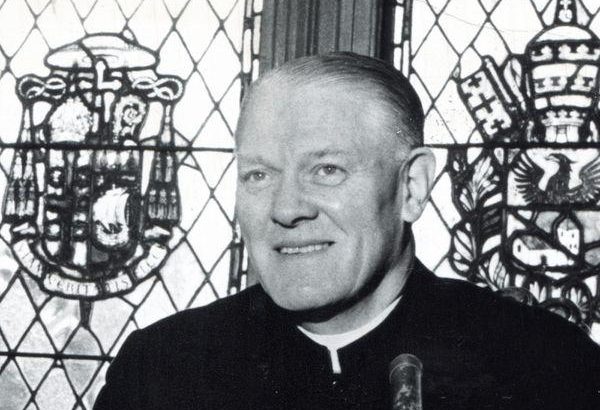The US Diocese of Springfield has released a report submitted by retired Superior Court Judge Peter Velis documenting his investigation into a claim of sexual abuse by the late Bishop Christopher Weldon and his finding the claim “to be unequivocally credible”.
The report also covers how the diocese handled this complaint and opportunities for improvement on handling future abuse allegations.
The full report was released on June 24 on the diocesan website, www.diospringfield.org, concurrent with a news briefing presented by Mr Velis and Archbishop Mitchell Rozanski.
Bishop Weldon, a native of the archdiocese of New York, was installed as the fourth bishop of the Springfield Diocese in 1950, and served until his retirement in the autumn of 1977. He died in 1982, aged 76.
Allegations of sexual abuse by Bishop Weldon, dating back to the early 1960s, were first related to diocesan staff members in 2014, and in July 2019, Mr Velis was appointed by the diocese to explore and investigate these allegations. The decision to engage the services of Mr Velis came after it was determined that Pope Francis’ recently promulgated ‘motu proprio’ Vos Estis Lux Mundi (You are the Light of the World) on addressing abuse allegations made against bishops would likely not apply to deceased bishops.
Investigation
The appointment of Mr Velis to this investigation also was preceded by disagreements between the alleged victim, diocesan employees and the Diocesan Review Board regarding the complaint and how it was handled. In the executive summary of his report, Mr Velis was critical of the diocese’s handling of the complaint against Bishop Weldon.
“It was clear in my examination that the process included an inexplicable modification and manipulation of the reports received by and acted on by the Diocesan Review Board,” he continued. “Additionally, the complaint process was compromised in that mandatory reporters failed in their duties to report the allegations to prosecutorial authorities.”
Regarding the conclusions reached through his investigation, Mr Velis wrote: “I conducted an intensive and in-depth investigation. Concomitant with it was a haunting consciousness of Bishop Weldon’s inability to refute the complainant’s allegations. Consequently, I conducted the process in the light most favourable to him.”
Despite what he termed the “unsavoury” nature of the report’s subject matter, Mr Velis, who is Greek Orthodox, said: “I came to have the highest respect for the Roman Catholic Church.”
Using the “highest standard” of “beyond a reasonable doubt”, Mr Velis said, “I stand by the findings as indisputable truth”.


 Late Bishop Christopher Weldon
Late Bishop Christopher Weldon 